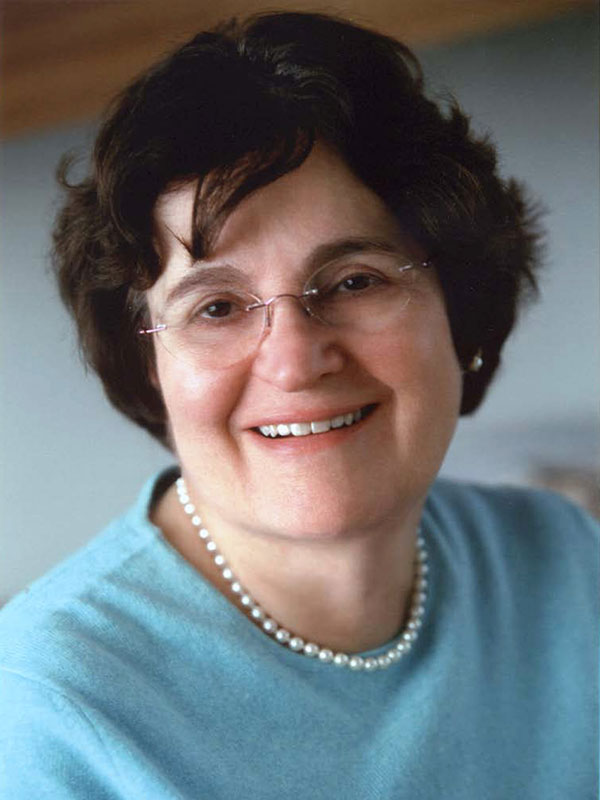Commencement 2016
Susan Band Horwitz to Deliver Einstein's 2016 Commencement Address
March 23, 2016—(BRONX, NY)—Cancer researcher and molecular pharmacologist Susan Band Horwitz, Ph.D., will deliver the keynote address at the 2016 commencement ceremony for Albert Einstein College of Medicine. Dr. Horwitz, distinguished professor of molecular pharmacology at Einstein, is best known for discovering the mechanism of action of Taxol, the first “blockbuster” drug to treat ovarian and breast cancer. Einstein’s graduation ceremony will take place Wednesday, May 25 at 6 p.m. at Lincoln Center’s David Geffen Hall.

Susan Band Horwitz, Ph.D.“As an investigator and academic leader, Susan has been a shining light in her field and at Einstein for decades,” said Allen M. Spiegel, M.D., the Marilyn and Stanley M. Katz Dean at Einstein. “We are truly honored that she will address our new graduates—especially at a time when breakthrough bench discoveries like Susan’s are increasingly being translated into successful clinical treatments.”
Dr. Horwitz’s seminal research contribution involves Taxol, whose generic name is paclitaxel. The FDA-approved drug was isolated from the Pacific yew tree and is used to treat ovarian, breast and lung cancers. To date, the drug has been given to more than one million patients. Dr. Horwitz began working on the drug in 1977 and, with funding from the American Cancer Society and the National Cancer Institute, she determined the mechanism by which Taxol exerts its antitumor effects—specifically, that the drug binds to and stabilizes microtubules, inhibiting their depolymerization, thereby blocking normal cell division. Taxol is also used to coat stents in the treatment of coronary atherosclerotic heart disease.
Dr. Horwitz has had a continuing interest in natural products as a source of new drugs for the treatment of cancer. In addition to Taxol, Dr. Horwitz contributions span several decades of research and encompass agents that have served as prototypes for some of our most important drugs that are currently in clinical use. Her research has led to an understanding of their mechanisms of action and of the development of drug resistance.
Dr. Horwitz joined Einstein in 1967 as a part-time research associate in the department of medicine. She was hired as an instructor in the department of pharmacology and was soon named a member of the faculty. She became co-chair of the department of molecular pharmacology in 1985, a position she relinquished in 2016. In 1986, she was named the Rose C. Falkenstein Chair in Cancer Research at Einstein and distinguished professor in 2005. She was the associate director for therapeutics at the NCI-designated Albert Einstein Cancer Center from 2000 to 2014.
“As an investigator and academic leader, Susan has been a shining light in her field and at Einstein for decades.”
– Dean Allen M. Spiegel, M.D.
Prior to joining Einstein, Dr. Horwitz completed postdoctoral fellowships in pharmacology at both Tufts University School of Medicine and Emory University School of Medicine. She received her Ph.D. in biochemistry from Brandeis University and her B.A. in biology from Bryn Mawr College.
Dr. Horwitz has been elected to the American Academy of Arts & Sciences, the National Academy of Sciences, The National Academy of Medicine and The American Philosophical Society. She is a member of the American Society for Cell Biology, the American Society for Pharmacology and Experimental Therapeutics, the American Chemical Society and the American Association for Cancer Research, of which she was president in 2002-03. She has been on the external scientific board of advisors for numerous organizations, including the National Cancer Institute, The Yale Cancer Center, The Dana-Farber/Harvard Cancer Center and Cancer Research UK, Cambridge, England.
Her dozens of awards include the C. Chester Stock Award from Memorial Sloan Kettering Cancer Center, Barnard Medal of Distinction, Warren Alpert Foundation Award from Harvard Medical School, Bristol-Myers Squibb Award for Distinguished Achievement in Cancer Research, American Cancer Society’s Medal of Honor and the New York Academy of Medicine Medal for Distinguished Contributions in Biomedical Science.
She is the author of more than 250 published papers and book chapters, and holds two U.S. patents.
Other Top Stories
9/11 World Trade Center Exposure Linked to Heart Disease Among NYC Firefighters
On Becoming a Physician: New Einstein Students Receive White Coats and Stethoscopes
Novel Therapy for Acute Migraine Shows Promise in Phase 3 Clinical Trial
First Complete Wiring Diagram of an Animal's Nervous System
Multimillion Dollar NIH Grant to Help Reduce Opioid Use & Get Care to People Who Need It
NIH Grant Funds $23 Million Study of Diseases Affecting People Living with HIV
New TAILORx Data Guides Adjuvant Therapy in Younger Breast Cancer Patients
Einstein Celebrates Its 61st Commencement
Bolstering Biopsies: Testing Patients' Individual Cells to Guide Treatment



Tablet Blog